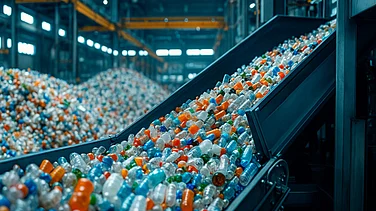“This is not the right strategy, and electric vehicles will ultimately dominate the markets," was the recent reaction of Tesla Chief Executive Elon Musk to some carmakers pulling back on EVs and preferring hybrids instead. Musk has promised to respond with more affordable vehicles and a new-generation tech platform that would help EV makers regain the advantage.
For countries like India, the growth of EVs is too central to address issues of serious air pollution, energy security, sustainable mobility, and economic stability. Air pollution has become a major public health scare for cities, including New Delhi, whereas high crude imports continue to dominate our key economic indicators. Our energy security aspirations would never be fulfilled unless we have the least dependence on oil imports.
Given this magnitude, some of the recent announcements by states to favour manufacturing and sale of hybrid vehicles not only contradict our net zero ambitions but also may encumber the car buyers with a technology that could soon become démodé, going by the past trends. In fact, hybrid vehicles are nothing new as a technology. Some of the then popular models in the West had failed to live up to their reputation due to faulty and consistent invertor and battery issues.
Does that mean the states like Uttar Pradesh are betting too much on plug-in hybrids, which are given sops like zero registration costs and a subsidy of Rs 1 lakh, or 15 percent of the ex-factory cost to customers? Obviously, this new policy is different from the Faster Adoption and Manufacturing of Electric Vehicles (FAME-II) scheme.
Significantly, the state is one of the largest markets for passenger vehicles after Maharashtra, having sold over 2.3 lakh units up to July this year. Thus, it is vital to consider some basic environmental and industry aspects before favouring hybrids.
Japanese companies have long resisted the EVs and contributed very little to the technological innovation in sustainable mobility. Moreover, companies like Toyota are making significant profits from countries like India, selling ICE vehicles. For 2023-24, it has posted 66 percent in revenue with profit after tax of 242 percent, driven largely by hybrids, including HyRydera and Innova HyCross. Obviously, the company has much at stake in growing this segment. But that also raises another valid question: do states like UP want to fuel their growth and profitability by pushing hybrids or go for full EVs in line with our net zero ambitions?
As a country, we need to learn from China’s dedicated hard work to gain global leadership in EVs for competitive reasons. In 2023, nearly one in five cars sold globally was electric (having registered 14 million vehicles), with China, Europe, and US accounting for 95 percent of the same. The initial determination to reduce heavy pollution in its cities has eventually led to a passion to dominate this market through generous subsidies, tax breaks, and favourable policies for buyers to incentivise EV sales, thereby sustaining a demand-led cycle. In the process, it has created several home-grown global champions as well as a passion among the youth to own full EVs, not to mention the sustainable mobility goals, according to an MIT study.
India’s adoption of EVs is also progressing in earnest; in the first half of the 2024 calendar year, EV registrations are up 16 percent year-on-year, underscoring our increasing interest in sustainable and greener mobility as well as the growing consumer confidence. As of today, we have 25,202 operational public charging stations and 27 state nodal agencies as per the Bureau of Energy Efficiency (BEE). Ironically, hybrids would utilise the same charging infrastructure set up for the EVs, limiting the gains and driving a large proportion of hybrids to use fossil fuels. As against this, there are 85,529 fuel pumps in India as of 2023 with UP alone accounting for more than 12 percent of the same. Thus, the solution lies in incentivising the number of public charge stations and installing many more in existing petrol pumps.
Globally, EV users face common issues related to range anxiety, charging stations, and battery technology. While the range anxiety is being progressively dealt with the expanding charging infrastructure, solutions such as new battery technology, faster charging ports, and longer battery life are being developed while the drivers are being trained to get the most out of every charge. A smooth and responsible driving style with reasonable speed, acceleration, and braking can increase energy efficiency. Promoting regenerative braking and training users to pre-heat or pre-cool vehicles can be highly rewarding.
Importantly, EVs are expected to play a large role in reducing the carbon output of India’s vast transportation and common mobility means. As a nation, we have to integrate EV adoption with the broader UN Sustainable Development Goals. In terms of technology adoption, by and large, Indians have been proven to be surprisingly efficient regardless of their social status. Examples are the easy leap into 5G technology, the high use of social media despite the barriers of the language, and, of course, the quick adoption of the UPI tools for payment.
Moreover, it is the duty of every government to attract investments that have higher viability, longevity, and economic sense for as long as possible. Foregoing tax revenue for the sake of short-term gains is not prudent, as these hybrid plants will have to be repurposed sooner to make them environmentally and economically viable on a sustained basis. That would be a zero-sum game for the states. While announcements of large investments by these companies are seen as feathers on the crowns of every chief minister, visionary leadership is “one that harnesses technological change for a positive benefit rather than allowing it to become disruptive,” as expounded by the Union Minister, Piyush Goyal.
At the moment, by placing a higher wager on hybrids over EVs, we may be diluting the gains from a steady EV adoption. In fact, many Gen Z and Millennials are proudly owning EVs, knowing the long-term value of these vehicles to the environment. When we reward them with subsidies and other benefits, we are giving a good chance to the environment to be cleaner and our future mobility to be greener.
(Sreevalsan Menon is a former business journalist who closely tracks the business and policy landscape.)




















